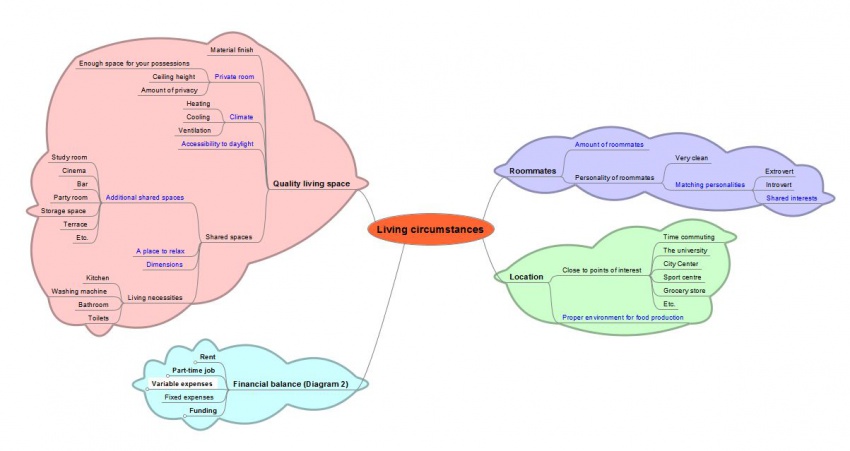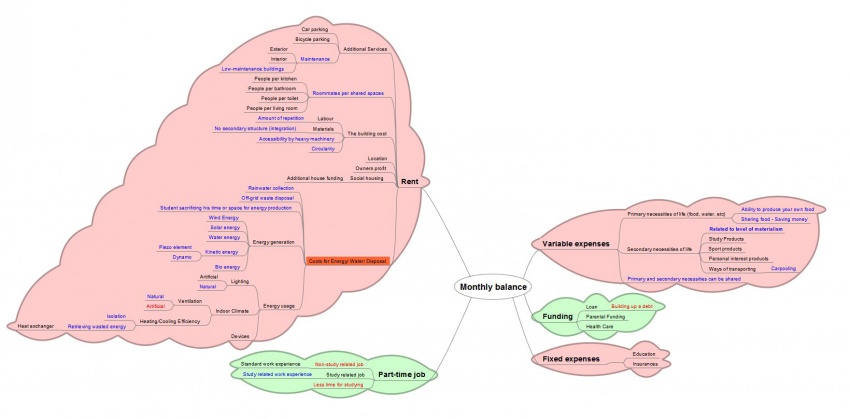Difference between revisions of "project08:Frontpage"
(→Rolf Huijgen) |
(→Rolf Huijgen) |
||
| Line 55: | Line 55: | ||
'''References''' | '''References''' | ||
| + | |||
-http://multimod.hyperbody.nl/index.php/project04:Studio | -http://multimod.hyperbody.nl/index.php/project04:Studio | ||
-http://www.gensleron.com/cities/2015/1/30/a-closer-look-at-student-housing.html | -http://www.gensleron.com/cities/2015/1/30/a-closer-look-at-student-housing.html | ||
| + | -https://www.youtube.com/watch?v=ufzcWTKB0eM | ||
Revision as of 20:58, 16 September 2016
Rolf Huijgen
Sharing is caring:
The student debt and the rising costs of education are tremendously affecting the quality of student housing. With the help of the Dutch student funding it was still affordable for most students to live in proper housing without building up an incredible debt. This year however the student funding has been discontinued which leaves students with a major financial problem. The state’s solution to this problem is allowing students to get a loan with almost no interest. Although getting a loan is becoming quite regular for students, most don’t feel at ease having a big debt hanging over their head. The funding successfully allowed students to focus on their studies instead of worrying about their financial problems. Without the funding students only have a few options left to study without worrying about their financial problems. Students can either be lucky with parental funding, get a part-time job, decrease monthly expenses or find cheaper student housing. Only a small percentage of the students have access to parental funding and although a part-time job can provide a student with proper work experience, it usually only keeps them from focusing on their studies.
My concept addresses the last two options at the same time: cutting on expenses and cheaper student housing. ‘Sharing resources’ is the main theme of my project which can be directly related to both saving on expenses and rent. Not only can students share secondary and primary resources like food, study materials and bicycles, but with an S.M.A.R.T environment it will also be possible to share space more efficiently. Of course static spatial designs already allow people to have shared spaces like a living room, kitchen and bathroom, but what if you could share your own private space with your neighbors without sacrificing your own privacy. Would you give away your own space, if this would mean saving on rent? And how much space do you really need to fit all your possessions? These questions will inherently cause students to think about materialism. Is it worth keeping and buying more possessions, if it means paying more rent? To really cut down on the students rent, not only his own room needs to be flexible but also the shared spaces. The rent is determined by numerous factors (see diagram), but one the most cost effective way of making the rent affordable is having more students using the same shared spaces. Being able to share the spaces without any personal conflict requires smart spatial planning and of course the right mix of roommates.
Theme S.M.A.R.T environments
Goal Lowering monthly expenses by efficiently sharing space, food and possessions with the help of S.M.A.R.T environments
Location: TU Delft Campus
Living Circumstances - Points of oppurtunity in blue
Student Financial balance - Points of oppurtunity in blue
Plan of Approach
1: Map student activity and minimal space requirements
2: Look into S.M.A.R.T Environments, either with interior altering technology (pop-up apartment) or volume altering technology
3: Location analysis
4: More upcoming
References
-http://multimod.hyperbody.nl/index.php/project04:Studio -http://www.gensleron.com/cities/2015/1/30/a-closer-look-at-student-housing.html
-https://www.youtube.com/watch?v=ufzcWTKB0eM
